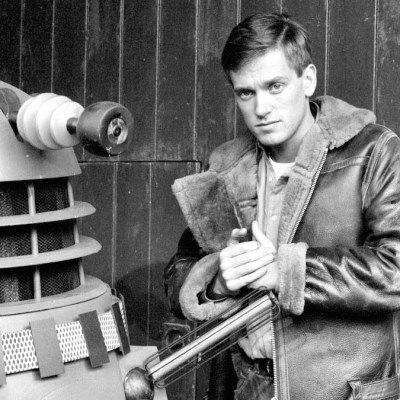It’s a Sin: the Single Line That Hints at a Tragic, Unspoken Backstory
Warning: contains spoilers for the It’s a Sin finale
Five-part 1980s-set AIDS drama It’s a Sin would have been three hours longer if creator Russell T Davies had his way. Speaking at Damian Barr’s Literary Salon, as reported by the Huffington Post, the screenwriter confirmed that there were originally plans for eight instalments, another housemate with their own story, and a final episode that would have revisited the characters in the present day.
Given the opportunity, Davies says he would have shown Lydia West’s Jill in her mid-50s going to visit an elderly Valerie Tozer (Keeley Hawes), the mother to Olly Alexander’s lead Ritchie.
It’s hard to imagine a final confrontation between Jill and Valerie more memorable than the one Davies gave us in the actual finale. The pair meet on a bleak English coastline, where Valerie has been nursing son Ritchie through the final stages of an AIDS-related illness, and refusing his best friends access to him. Having been summoned to the meeting by Valerie, Jill is hopeful that the hostility has thawed and that she and Omari Douglas’ character Roscoe – who’ve decamped from London to be near Ritchie in his dying days – will finally receive an invitation to see the man they love.
Jill and Roscoe don’t get an invitation. Instead, Jill is told that Ritchie died a day earlier, and that he was alone when it happened. Jill is winded by the news, and by Valerie’s defensive repetition that, though she may not have handled it well, none of this was her fault.
The previously conciliatory Jill, an ally and stalwart for Ritchie and countless other gay men infected with HIV, launches an attack on Valerie. It is your fault, Jill tells her. She raised Ritchie to feel such shame about his sexuality, Jill says, that he lived with his illness in secret and endangered the lives of other men because he was unable to come to terms with the truth.
“Because that’s what shame does, Valerie,” says Jill. “It makes him think he deserves it. The wards are full of men who think they deserve it. They are dying, and a little bit of them thinks, yes, this is right. I brought this on myself.”
In Jill’s speech, she’s not only addressing Valerie as an individual but as representative of a mainstream culture that inculcates a sense of shame around LGBTQ+ identities. The casual bigotry and homophobia that Ritchie grew up around, combined with his parents’ blinkered attitude to who their son really was, left him self-hating and unable to take proper care of himself and others.
Part of Jill’s ire comes from knowing through her own loving and accepting parents, that while Ritchie’s home life may have been common for many gay men, with more effort and understanding it could all have been very different. She tells Valerie as much when she says, “I don’t know what happened to you to make that house so loveless.”
By this point, viewers have a shadow of an idea as to what happened. A single line spoken earlier by Valerie to Ritchie hinted at the circumstances that may have shaped the mother she became – loving but repressed, frozen with shame and filled with rage. In Ritchie’s bedroom, Valerie breaks off mid-anecdote to ask him if he remembers his grandfather. “He was a terrible man,” she says quietly, and then changes the subject.
Davies has confirmed that, in his original conception of the finale in which a modern-day Jill visits an aged Valerie in her care home, she would have discovered “the sexual abuse at the heart of the Tozer household and how Valerie ended up like she did.”
Ritchie’s mother, we can infer, was a survivor of childhood sexual abuse committed by her own father. Living with her own deeply held sense of shame and suffering, Valerie’s conception of familial love became warped. She lived with what she saw as a terrible secret, and it held her back from having a truthful relationship with the son she clearly loved but whose dying wishes she cruelly ignored.
Part of Russell T Davies’ scriptwriting genius (that’s not hyperbole. It’s the only word for it) is that he, actor Keeley Hawes and director Peter Hoar did manage to tell the story of Valerie’s abusive childhood in the version of It’s a Sin we watched. They may not have had that three extra hours, but it was done with a single five-word line that spoke volumes.
It’s a Sin is available to stream now on All4 and HBO Max.
The post It’s a Sin: the Single Line That Hints at a Tragic, Unspoken Backstory appeared first on Den of Geek.
From https://www.denofgeek.com/tv/its-a-sin-the-single-line-that-hints-at-a-tragic-unspoken-backstory/



